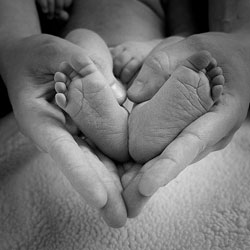Postnatal Depression & Distress
What is postnatal depression?
 Postnatal Distress (PND) is the umbrella term used to encompass a variety of adjustment difficulties, and various mood and anxiety disorders that new parents can experience when pregnant and after the baby is born. It typically presents as an agitated depression with both depression and anxiety being key features.
Postnatal Distress (PND) is the umbrella term used to encompass a variety of adjustment difficulties, and various mood and anxiety disorders that new parents can experience when pregnant and after the baby is born. It typically presents as an agitated depression with both depression and anxiety being key features.
Dads get the baby blues, too - NZ Herald article
The Symptoms
The onset of PND can manifest during pregnancy for 10% of women and PND will occur any time during pregnancy, or immediately after the birth or any time during the first year. However, it commonly occurs within the first 6 months after baby is born. Many new mothers experience postnatal blues (low) or pinks (high) in the first few weeks after baby is born. For some women (and men) this will develop into Postnatal Depression and Anxiety and more than 20% of women and 10% of men will experience this. More than 6% of women will have a traumatic birth.
No one single sign or symptom in the following list indicates PND but if a new mum has some of the following warning signs or symptoms and experiences them for more than a week she may have PND:
- Frequent crying
- Mood swings
- Irritability
- Extreme fatigue
- Difficulty concentrating
- Sleeping problems
- Loss of sexual interest
- Anxiety – worrying a lot, having a sense of panic
- Appetite changes
- Negative scary thoughts
- Obsessive thoughts
- Feelings of inadequacy and being overwhelmed
- Hopelessness and despair
- Thoughts of suicide
- Feelings of anger, shame and guilt, wanting to isolate and withdraw
- Loss of confidence and self-esteem
- Feeling afraid to be alone
Birth trauma (PTSD after childbirth)
These symptoms should alert you to possible birth trauma:
- Experiencing the birth as a traumatic event
- Flashbacks of the birth, vivid and sudden memories
- Nightmares of the birth
- Inability to recall an important aspect of the birth
- Exaggerated startle response and constantly feeling on edge
- Hyper-aroused and hyper-vigilant and hyper-sensitive
- Avoidance of all reminders of the birth
- Intense psychological distress at exposure to any event that reminds her of the traumatic birth
- Panic attacks, sweating, palpitations
